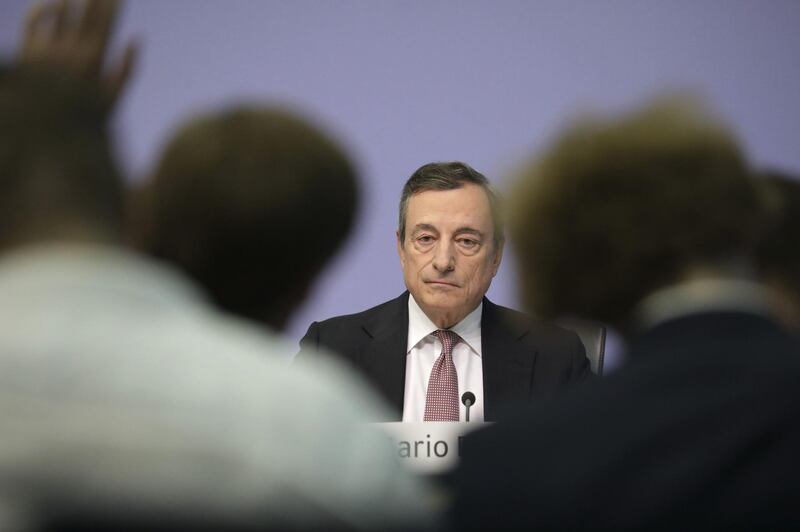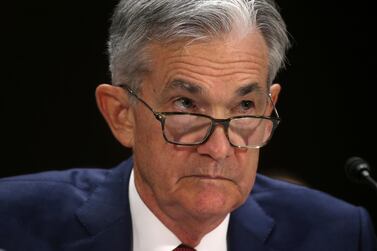Easier monetary policy appears to be the strategy of the day but events over the past week have raised some questions about its wisdom, its likely effectiveness and even its purpose.
Indeed, with monetary policy in danger of suffering from diminishing returns it is probably time for fiscal policy to take more of the strain.
Major central banks are clearly moving towards a new era of cheaper money if the European Central Bank’s message last week is anything to go by. The ECB policy meeting on Thursday laid the ground for a comprehensive set of easing measures in September that focuses not only on lower policy rates, but also on additional asset purchases and a review of the central bank's inflation target and forward guidance.
However, it was also clear from the decision that not everyone on the ECB Council is on board with the promised steps. President Mario Draghi said that "most people" on the governing council "converged on this" response to the economic slowdown but acknowledged that the statement did not have unanimous support.
So, while the ECB is stepping up to "do whatever it takes" to boost inflation, there is also a growing sense that monetary policy might be running out of effectiveness, especially as interest rates in the eurozone are already negative. Comparisons with the Bank of Japan’s lost decade of zero interest rates in the 1990s are increasingly being made. Negative interest rates impact the banking sector’s core business of making spreads on lending and deposits, so it is no surprise to see most banks in the current earnings season warn about a drop in net interest margins.
While the ECB appears intent on going ahead with cutting rates and doing more quantitative easing (QE), its statement also confirmed it is looking into ways to mitigate the impact of negative interest rates for banks including the option of a tiered deposit rate. This, however, may be another source of tension on the council, with some countries believed to be in favour of such an approach and others against.
The same goes for any resumption of QE given the central bank's own guidelines on issuer limits leave little room for additional government bond purchases. Hence potential proposals could include a widening of asset classes to include equities, but also changes to the voting rights of national central banks to circumvent issuer limits. All of this could trigger fresh legal challenges and test the ECB's mandate, although it seems likely that Mr Draghi will still get enough support for an initial round of measures.
The ECB’s situation is of course relatively unique compared to the US Federal Reserve and Bank of England, which both managed to raise interest rates after the financial crisis, giving them room to embark on a new round of monetary easing. However, the data released last week from the US appeared to beg a different question about the efficacy of cutting interest rates, namely, to what purpose?
The slowdown in US gross domestic product growth to 2.1 per cent in the second quarter of 2019 from 3.1per cent in the first quarter was probably enough for the Fed to execute its much awaited 25 basis point cut in the Fed funds rate this week, but it did not reveal an economy in need of much more stimulus than this. This might normally be considered good news for US policymakers, but it is unlikely to be enough for President Donald Trump who will probably persist with pressuring the Fed to keep on cutting, thus putting Fed chairman Jerome Powell in an increasingly awkward position. Mr Powell may think the Fed has a reasonable dual mandate of stable prices and maximum sustainable employment, but Mr Trump appears to have other objectives centered on getting re-elected in 2020.
Of all the major countries, it may actually be the UK under new Prime Minister Boris Johnson that is showing the way forward, by preparing to loosen fiscal policy. While this might have the specific purpose of softening the impact on the economy of a no-deal Brexit, another benefit, if it succeeds in promoting growth, could be to make difficult decisions about monetary policy unnecessary, something for European and US policymakers to think about.
Tim Fox is chief economist and head of research at Emirates NBD







